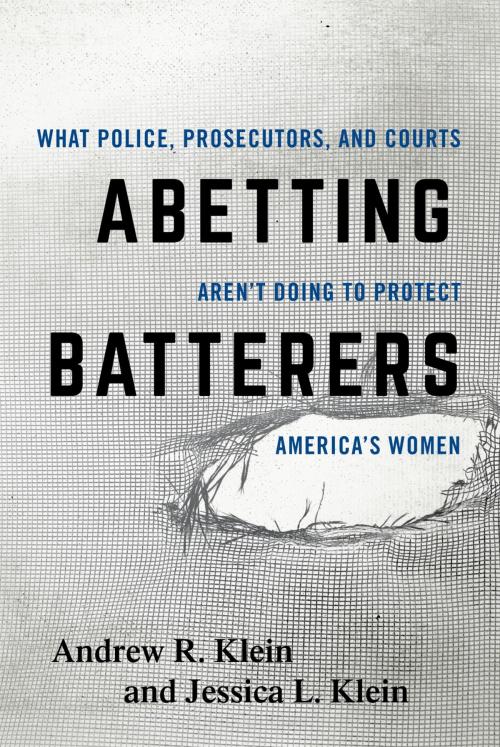Abetting Batterers
What Police, Prosecutors, and Courts Aren't Doing to Protect America's Women
Nonfiction, Reference & Language, Law, Criminal law, Social & Cultural Studies, Social Science| Author: | Andrew R. Klein, Jessica L. Klein | ISBN: | 9781442248281 |
| Publisher: | Rowman & Littlefield Publishers | Publication: | July 8, 2016 |
| Imprint: | Rowman & Littlefield Publishers | Language: | English |
| Author: | Andrew R. Klein, Jessica L. Klein |
| ISBN: | 9781442248281 |
| Publisher: | Rowman & Littlefield Publishers |
| Publication: | July 8, 2016 |
| Imprint: | Rowman & Littlefield Publishers |
| Language: | English |
Whatever the number, domestic violence victims remain far too many for a preventable crime. More and more victims of intimate partner violence are reaching out to police, prosecutors and judges only to be sorely disappointed, even betrayed. While laws and programs have multiplied over the last few decades to address domestic violence, the country is getting safer for almost everyone except for women who have, or have had, abusive male intimate partners. Andrew R. Klein and Jessica L. Klein look at the criminal justice response to domestic violence across America today, ranging from police to prosecutors and courtrooms across the nation.
Abetting Batterers reveals the troubling pattern of inattention and incompetence that compromises the safety of women and encourages their male abusers to continue their abuse and violence. Although criminal justice system agencies vary among cities, towns and counties within the same state they all too often relegate domestic violence to the backburners of the system, dismissing victims and ignoring even the most serious and chronic abusers. The variation reveals the real problem in preventing intimate partner violence lies in these agencies’ commitment and will, rather than their ability to do the job.
The authors unveil what is working in regard to protecting victims of domestic violence and holding their abusers accountable, and they suggest strategies for ensuring that what is being done right can be replicated and become the law and practice across the nation. The wide variation in how intimate partner violence is handled by similar jurisdictions demonstrates the real problem in preventing it lies in these agencies’ commitment, rather than ability to do the job. This book proves to be invaluable in understanding what is and is not being done in the reality of domestic violence in America.
Whatever the number, domestic violence victims remain far too many for a preventable crime. More and more victims of intimate partner violence are reaching out to police, prosecutors and judges only to be sorely disappointed, even betrayed. While laws and programs have multiplied over the last few decades to address domestic violence, the country is getting safer for almost everyone except for women who have, or have had, abusive male intimate partners. Andrew R. Klein and Jessica L. Klein look at the criminal justice response to domestic violence across America today, ranging from police to prosecutors and courtrooms across the nation.
Abetting Batterers reveals the troubling pattern of inattention and incompetence that compromises the safety of women and encourages their male abusers to continue their abuse and violence. Although criminal justice system agencies vary among cities, towns and counties within the same state they all too often relegate domestic violence to the backburners of the system, dismissing victims and ignoring even the most serious and chronic abusers. The variation reveals the real problem in preventing intimate partner violence lies in these agencies’ commitment and will, rather than their ability to do the job.
The authors unveil what is working in regard to protecting victims of domestic violence and holding their abusers accountable, and they suggest strategies for ensuring that what is being done right can be replicated and become the law and practice across the nation. The wide variation in how intimate partner violence is handled by similar jurisdictions demonstrates the real problem in preventing it lies in these agencies’ commitment, rather than ability to do the job. This book proves to be invaluable in understanding what is and is not being done in the reality of domestic violence in America.















